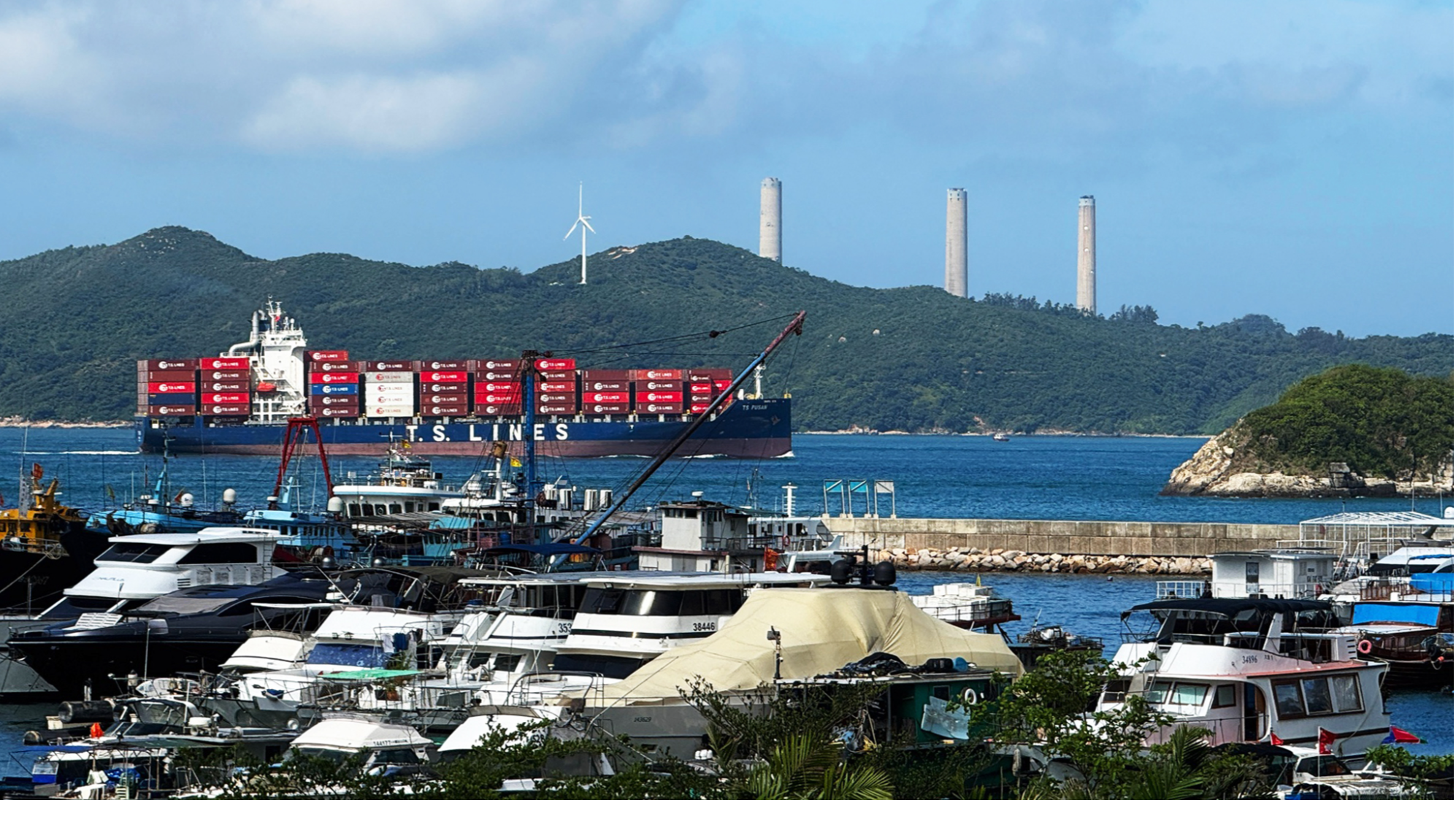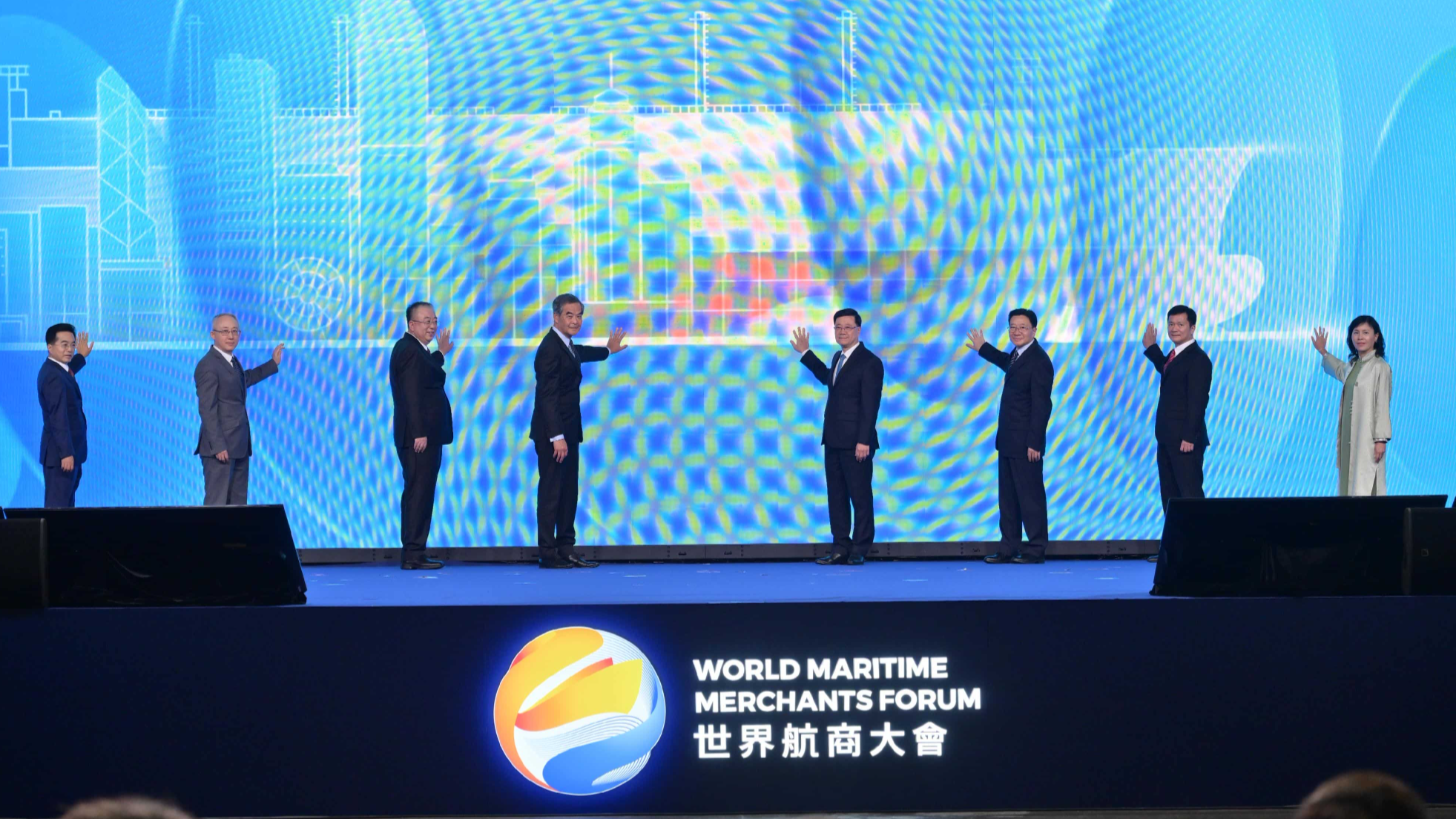
HONG KONG - Global shipping leaders are in Hong Kong this week to deliver a clear message: Dialogue is the only way through the industry's triple crises -- fragmented decarbonization regulations, geopolitical disruptions and a seafarer shortage.
The two-day World Maritime Merchants Forum 2025, which closed on Tuesday, positions Hong Kong as an anchor of stability for the global shipping industry. Tasked with leveraging its links to the Chinese mainland and the world, the city is driving the sector's green transition.
Hong Kong's credentials are impressive. For the sixth consecutive year, it has been ranked fourth globally in the International Shipping Center Development Index. Home to over 1,200 port and maritime-related enterprises, the city specializes in ship management, finance, insurance, and law.
"Hong Kong shipowners control nearly 10 percent of the global merchant fleet by deadweight tonnage. Four of the world's top 10 ship management companies are headquartered here, overseeing thousands of vessels worldwide," said Angad Banga, chief operating officer of the Caravel Group and chairman of the Hong Kong Shipowners Association. "These are not just statistics -- they represent confidence in Hong Kong's delivery capabilities."
ALSO READ: CE: HK's role as reliable, dynamic maritime hub vital amid challenges
Shekkappan Kannan, regional service business manager of Alfa Laval (China) Ltd, views Hong Kong as an ideal destination for investment, technology, talent and legal services. He believes Hong Kong serves as a "facilitator" and "gateway" connecting the Chinese mainland to global markets.
As Martin Kroeger, CEO of the German Shipowners' Association, put it: the Chinese mainland will soon become a top producer of alternative fuels, and Hong Kong's financial strength can underpin this capacity transformation. This creates a "mainland production plus Hong Kong finance" model unmatched by any other hub.

Hong Kong's practicalism also makes it a bridge for rulemaking. "When crafting commercial rules, Hong Kong balances stakeholder interests, endowing it with a natural advantage to become a coordinator of maritime rules," noted Rolf Thore Roppestad, CEO of Gard AS. This proves invaluable amid global regulatory fragmentation.
Hong Kong is walking the talk. It will soon launch methanol bunkering and is planning green shipping corridors.
"We have a clear roadmap, even if the International Maritime Organization (IMO)'s framework lags," said Mable Chan, secretary for Transport and Logistics of the Hong Kong Special Administrative Region government. She was referring to the city's Action Plan on Green Maritime Fuel Bunkering, which aligns with the 2050 net-zero goal of the International Maritime Organization (IMO).
ALSO READ: China revises regulations on international maritime transport
Laws have been updated to permit liquefied natural gas and methanol bunkering. The Green Incentive Scheme has been rolled out to reward Hong Kong-registered ships that achieve high ratings under the IMO's international decarbonization standards. Meanwhile, the HKSAR government is allocating land for fuel storage facilities and offering tax breaks for new energy trade.
"The core is government-industry collaboration: listen first, then support," explains Edward Liu, the principal representative of the International Chamber of Shipping (China) Liaison Office.
"Hong Kong's busy, well-connected hub is turning potential into momentum," says Giles Lane, a director of Clarksons.
Wei Muheng of ZhenDui Industry Artificial Intelligence Co Ltd (ZDIAI) hails the city as the "key green shipping financier and technology tester" for the Guangdong-Hong Kong-Macao Greater Bay Area.
READ MORE: Key maritime merchants forum in HK helps steer course for shipping industry
Shipping's global nature demands cross-border cooperation, and Hong Kong is forging crucial connections. Mable Chan believed that the city could partner with Shenzhen's Yantian Port to leverage their comparative strengths. Kroeger advocates a "production-financing-application" chain linking Hong Kong's capital to Chinese mainland fuel plants. Kannan urges the city to "take the lead in regulation and mediation to help turn global consensus into action.
As emission rules and carbon taxes diverge across regions, which is weighing on the global decarbonization process, "dialogue and trust are what resolve disputes," said Vinod Kumar Sehgal, CEO and managing director of SeaQuest Shipmanagement. He expects the city to play a bigger role in the global shipping industry's green transition.


